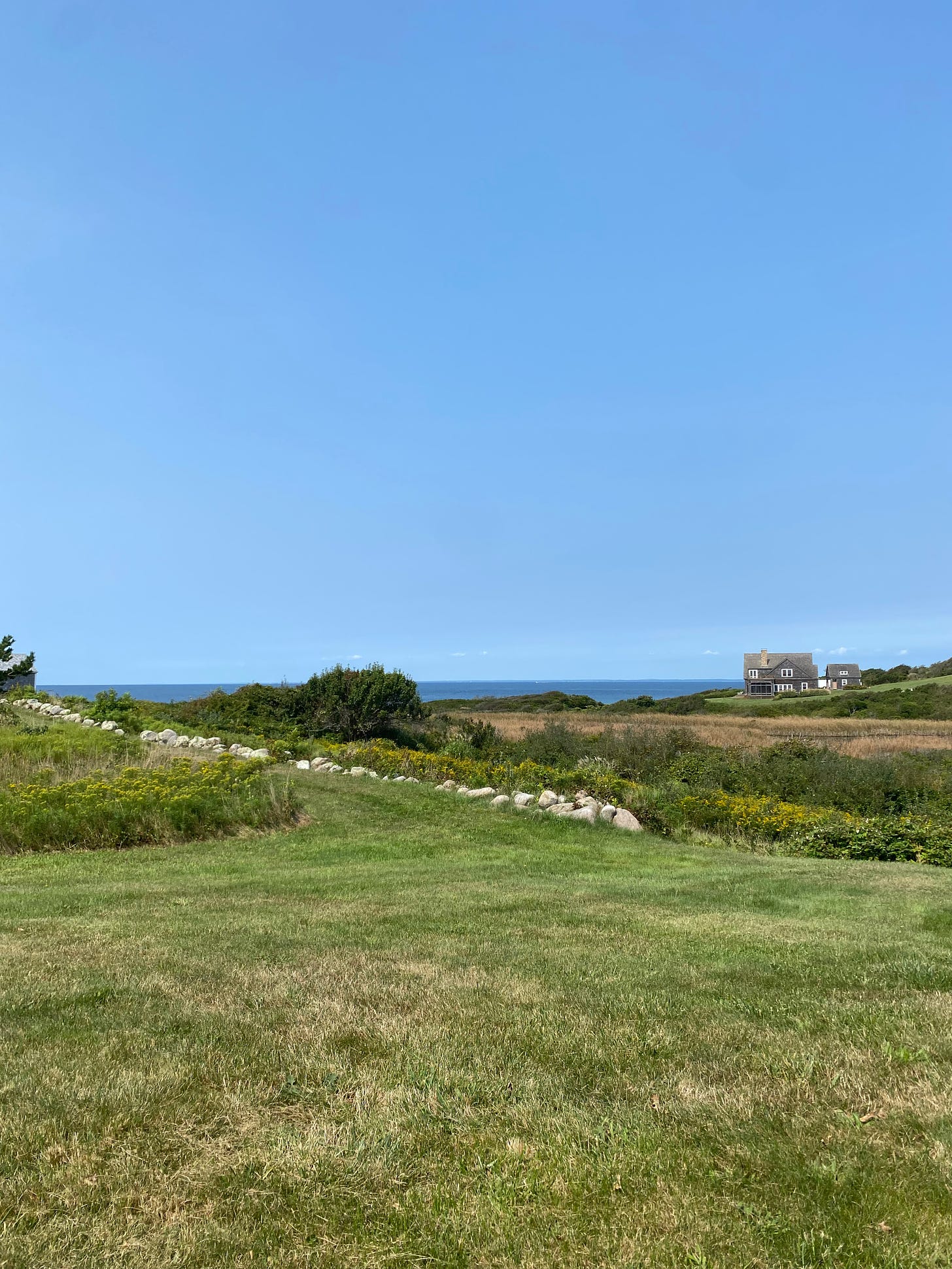I’ve been coming to Block Island for as long as I can remember, definitely since I was born, because my grandparents bought a house and eight acres of land here in something like 1973 or 1978. I’m here again now. I’m writing this on an Adirondack chair overlooking the Block Island Sound. When I was younger, it always seemed like it was almost impossible to see the mainland across the Sound, like you’d have to really squint, but now I can see it just by looking. I don’t know if the ocean got smaller or the mainland got bigger. I know that’s not how coastal geography works, of course.
My grandmother’s name was Martha and she was a neuroscience-oriented psychologist who made some important discoveries about monkey brains and therefore human brains. The story or legend, which we were told surprisingly infrequently for a family that enjoys self-mythologizing as much as mine does, is that she was a single mother, a graduate student or maybe young professor, working in the monkey lab with a number of professors including a young researcher named Bill, who cleaned her monkey cages one evening and then asked her to dinner. She said yes, correctly interpreting his cleaning of her monkey cages as a romantic gesture. After dinner, they decided to get married. They were together for 70 years, until he died a few years ago, and they were in love. “Man and wife are one,” she said to me often. There’s a picture of them from when they’re in their late sixties or maybe even early seventies. She’s stretched out on a rock on a beach and he’s scampering over towards her. I think they’re holding hands. He was the kind of person who scampered until he was about 90.
Sometimes I think that my grandmother sent P to me. During one of our early phone calls, in the first year that we knew each other, when we were still just casual acquaintances, I was sitting in basically the same place I’m sitting now, looking at the same Block Island Sound view. After we hung up, I told my grandmother that I’d just been talking to my friend. I remember feeling happy, like I wanted to keep talking to him, like two hours wasn’t enough. Later, he remembered how I’d told him about my grandmother’s grammatical corrections of my already-published book and how he’d thought this was sort of great, in many ways, so sometimes I wonder if after she died she sent him back to me, having known that he was someone who made me happy, someone I wanted to keep talking to. I wish he could have met her, I said to him this weekend at a family wedding, because I think she would have really liked him.
She was happy when I got married. I’d had a long string of dramatic relationships that hadn’t worked out, and it seemed like I was always in some kind of misery or pickle or confusion. And then she was relieved when I said I was getting divorced. I described our dynamic to her, where I took care of everything. “Oh, you’re Mommy,” she said. “That never works.” It turned out she’d been Mommy in her first, very short marriage to my mother’s biological father, whom I’d never really grown up with, always knowing that Grandpa Bill, the monkey cage-cleaner, was my grandfather. It was illuminating to bond over both having made the same mistakes in our first marriages.
“Do you think you have good taste in men?” she asked during what would be our last dinner, when she knew she was on her way out and was probably trying to send me off well. “Obviously not,” I said. This was maybe an hour after I’d had that friendly conversation with P, who was of course just an acquaintance. An acquaintance whom I wanted never to stop talking to. That’s why sometimes I think she sent him to me. She knew.
It’s hard to be here and not think about her, not feel like she might be around the corner or just in the back bedroom. It makes me think about why we do funerals and memorials. It’s for those of us who are left. I remember my grandfather’s memorial, which we all flew out for, and I remember his death. I remember sitting in their bedroom as he held onto her knee and slowed his breathing down. I remember how at the moment we all sat there, in a circle, quietly, watching him die. My grandmother looked at him, saw he wasn’t breathing, and sat down again. She put on lipstick and called the undertaker. They took him out, and I realized that he lived everywhere now. I miss them so much. She would have really liked P.



Those last four sentences. Good lord
I needed this more than I knew.